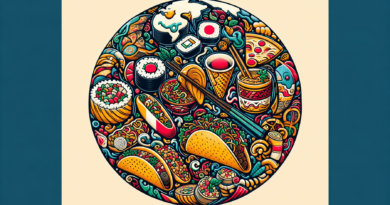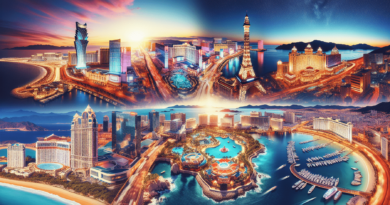Cultural Exploration
Imagine stepping into an exciting journey called “cultural exploration” where you’ll learn about different traditions, customs, and practices around the globe. With each step, you’ll gain a deep understanding of diverse cultures from the enchanting East to the vibrant West, and everything in between. You’ll encounter unique aspects of civilizations, their history, lifestyle, art, cuisine, and so much more. It’s an extraordinary journey, ready for you to embark on; a journey designed to enlighten your knowledge and broaden your perspective. There’s your chance to appreciate the diversity of the world’s cultures like never before, ready to take you off the beaten path, and allow you to explore the uncharted territories of global cultures.

Defining Cultural Exploration
When we talk about cultural exploration, what exactly are we referring to?
Understanding the concept of cultural exploration
Cultural exploration is about immersing oneself in different cultures, aiming to understand and appreciate their customs, traditions, and ways of life. It’s not merely about sightseeing or sampling exotic cuisine, it goes much deeper than that. It’s about delving into the heart of a place, getting to know its people and their history, and gaining a sense of how their culture has evolved and shaped them as a community.
Importance of cultural exploration in contemporary society
In the ever-globalizing world, cultural exploration is more important than ever. It bridges gaps between various cultural identities, breaks stereotypes, and promotes understanding and tolerance. By exploring different cultures, we’re also expanding our horizons, encouraging personal growth, and cultivating a broader, more inclusive perspective.
Dynamics of cultural exploration
Cultural exploration is a dynamic process that involves active engagement, observation, and participation. It involves adapting to new environments, understanding different social norms, and appreciating various forms of art, cuisine, and language. This gives us a broader understanding of diversity and a fuller appreciation of our shared humanity.
Historical Perspectives of Cultural Exploration
Cultural exploration has a rich and diverse history.
Early stages of cultural exploration
In the early stages, cultural exploration was closely tied to physical exploration. Voyagers sailed across unknown seas, explorers ventured into uncharted territories, all happening upon distinct cultures and civilizations, often vastly different from their own.
The explorers of yore and their cultural encounters
Explorers from ages past like Marco Polo, Christopher Columbus, and Fernandez Magellan brought tales of diverse cultures, exotic landscapes, and foreign societies. They brought back not just tangible items, but also stories, knowledge, and experiences, sparking off curiosity and setting the groundwork for cultural understanding.
The Age of Discovery and cultural exchange
The Age of Discovery marked a critical turning point in cultural exploration. Through maritime exploration, nations started opening up trade routes, which led to the direct cultural exchange. This era saw not just the transfer of goods, but also the dissemination of ideas, customs, and knowledge.
Elements of Cultural Exploration
Let’s delve into some important elements of cultural exploration.
Language as a means of cultural exploration
Language is a critical tool for cultural exploration. It’s not just about communicating; language offers insight into people’s thought processes, historical and social contexts, and cultural nuances. It provides an element of connection, breaking barriers, and fostering understanding.
Artistic representations in cultural understanding
Art serves as a mirror to society and is a powerful means of cultural exploration. Paintings, sculptures, literature, music, and dance, all these artistic forms express cultural identities and offer invaluable insights into history, traditions, and societal norms.
Cuisine in cultural exploration
Cuisine plays an integral role in cultural exploration. Traditional food offers deep insights into a culture’s history, geography, and lifestyle. It’s a cuisine that often builds bridges, connecting people through the shared experience of food.
Technological Advances and Cultural Exploration
The digital age has significantly altered the landscape of cultural exploration.
Impact of internet and social media on cultural exploration
The Internet and social media have made cultural exploration accessible to everyone. Now, we can virtually traverse different nations and cultures, learning about their customs and traditions from the comfort of our homes.
Exploring cultures remotely via technological platforms
Technological platforms offer incredible resources for cultural exploration. Virtual tours, online language learning, cultural documentaries, and global cookbooks permit rich, interactive learning experiences right at our fingertips.
Preserving cultural heritage using technology
Technology also aids in preserving cultural heritage. Digital archiving, 3D scanning, and virtual reality can help document and preserve cultural sites, artifacts, and traditions for future generations.
Cultural Exploration and Globalization
Globalization and cultural exploration go hand in hand.
Globalization facilitating cultural exchange
Globalization has paved the way for intensified cultural exchange. More and more people are traveling, studying, and working abroad, creating opportunities for cultural exploration and exchange on an unprecedented level.
Downsides of globalization on cultural identities
However, globalization also poses challenges. The fear of cultural homogenization, loss of traditional values, and identity erosion looms large. It’s essential to balance the benefits of cultural integration with the preservation of cultural uniqueness.
Globalization, a boon for cultural tourism
Globalization has also fueled the rise of cultural tourism. People are not just interested in visiting a place; they want to immerse themselves in its culture. This has promoted cultural understanding and exchange, whilst boosting local economies.
Case Studies in Cultural Exploration
To understand cultural exploration further, let’s check out some case studies.
Cultural exploration in Asia: A glance through the eastern cultures
Asia, with its cultural diversity, offers a fascinating case study. From the community-centered Confucianism in China to the dichotomy of modernity and tradition in Japan, to the vibrant hues of Indian festivities, Asian cultures are rich, diverse and captivating.
Exploring European culture: From Western to Eastern Europe
European culture boasts a compelling blend of history and modernity. Whether it’s the Renaissance influence in Italy, France’s love for cuisine and fashion, Germany’s precision and discipline, or the resilience of the Eastern block, Europe offers varied cultural insights.
African traditions and cultural nuances
Africa’s cultural exploration reveals a treasure-trove of tribal traditions, vibrant art, soulful music, and rich oral histories. The traditional ways of life in rural Africa are a window into the continent’s past and its cultural fabric.
Cross Cultural Communication and Cultural Exploration
Communication plays a critical role in cultural exploration.
Role of communication in cultural exploration
Effective communication forms the basis of genuine connections and understanding in cultural exploration. It’s through the exchange of ideas and values that we truly learn about different cultures and widen our perspectives.
Barriers in cross-cultural communication
Cross-cultural communication is not without its challenges. Differences in language, gestures, non-verbal cues, or societal norms can cause misunderstanding. Moreover, unconscious biases or stereotypes can also act as hurdles in effective communication.
Strategies to improve cross-cultural communication
Improving cross-cultural communication involves active listening, open-mindedness, patience, and empathy. Learning about cultural etiquette, practicing cultural sensitivity, and checking our biases can help break barriers and foster more meaningful interactions.
Cultural Exploration and Education
Education plays a pivotal role in promoting cultural exploration.
Incorporating cultural exploration in education
By incorporating cultural exploration in education, we can encourage students to think globally, appreciate diversity, and foster values like empathy and tolerance. This can be done through culturally diverse curriculums, exchange programs, or field visits.
Benefits of cultural learning in schools
Cultural learning in schools equips students with the skills necessary to navigate the global society. It enhances critical thinking, broadens worldviews, fosters appreciation for diversity, and develops more inclusive attitudes.
Promoting cultural understanding among students
Promoting cultural understanding among students is about creating an environment that values diversity. This includes encouraging curiosity about different cultures, promoting inclusion, and ensuring representation and recognition of all cultural backgrounds.
Impacts of Cultural Exploration
Cultural exploration has far-reaching impacts.
Effect on individual identity
Cultural exploration broadens our horizons, thereby influencing our self-concept and individual identity. It enables us to view ourselves as part of the global community, fostering open-mindedness, adaptability, and an international mindset.
Influence on social behavior
Cultural exploration also shapes our social behavior. As we learn about and understand different cultures, we become more respectful, tolerant, and empathetic in our interactions. It promotes social cohesion and unity in diversity.
Contribution to global peace
Moreover, cultural exploration can contribute to global peace. When we learn about diverse cultures, we develop mutual respect and understanding, reducing prejudice and discrimination. This fosters peace and harmony on a global scale.
Future of Cultural Exploration
As we look ahead, what does the future hold for cultural exploration?
Challenges in cultural exploration
New challenges emerge as cultural exploration moves ahead. These include preservation of threatened cultures, managing cultural appropriation, ensuring equitable access to cultural resources, and navigating the complexities of digital cultural exploration.
Role of policy-makers in promoting cultural exploration
Policy-makers can play an integral role in promoting cultural exploration. This can be done by incorporating intercultural learning in educational policies, promoting cultural tourism, or instituting regulations that preserve and respect cultural heritage.
The outlook for cultural exploration in the digital era
The digital era holds immense potential for cultural exploration. The future could see more immersive digital cultural experiences, like augmented reality tours, AI-powered language translation and personalized cultural learning. Despite the challenges, the future of cultural exploration looks promising, promising deeper cultural connections and an enriched global perspective.





Pingback: Genealogy Tourism - Luxury Travel 🔹